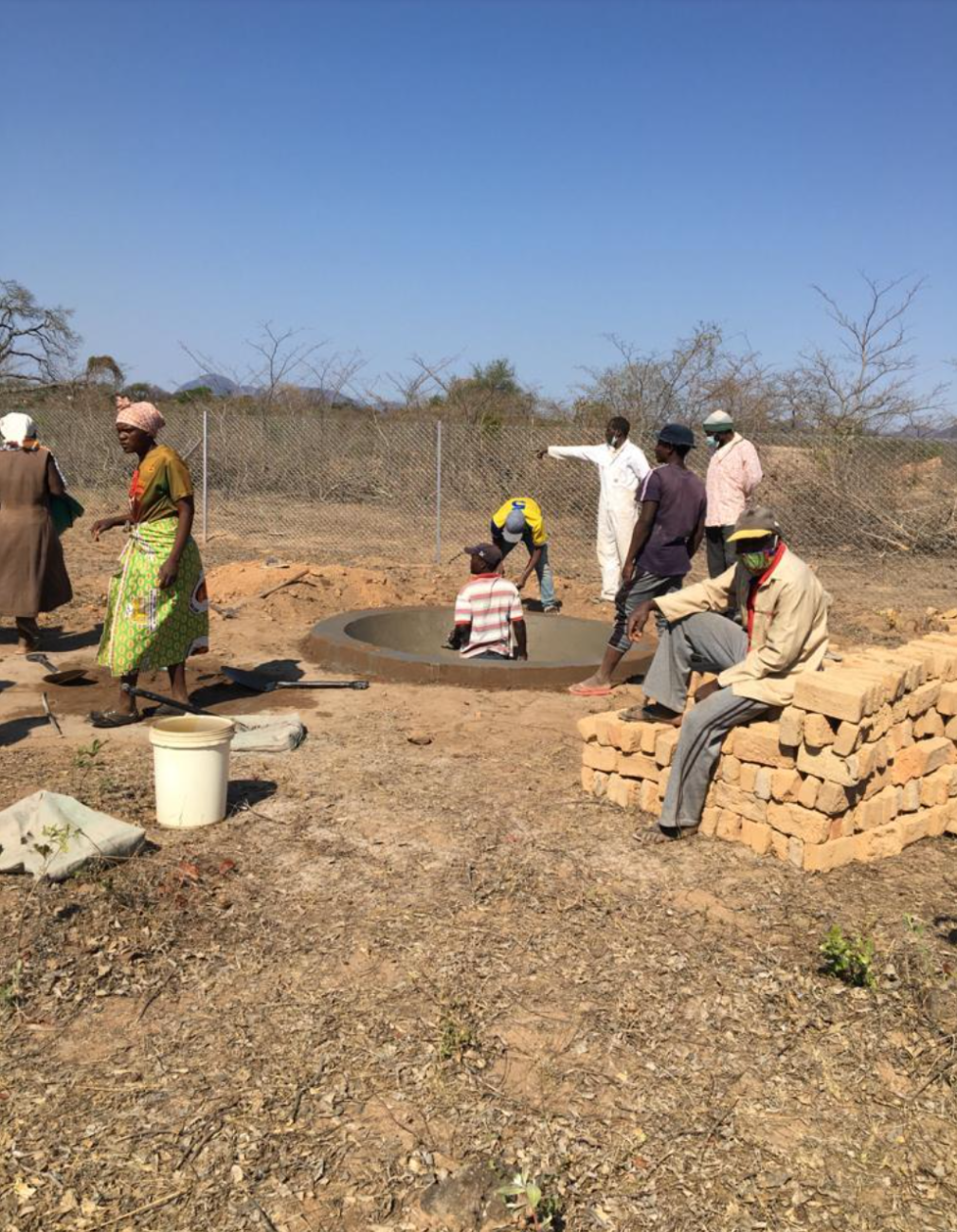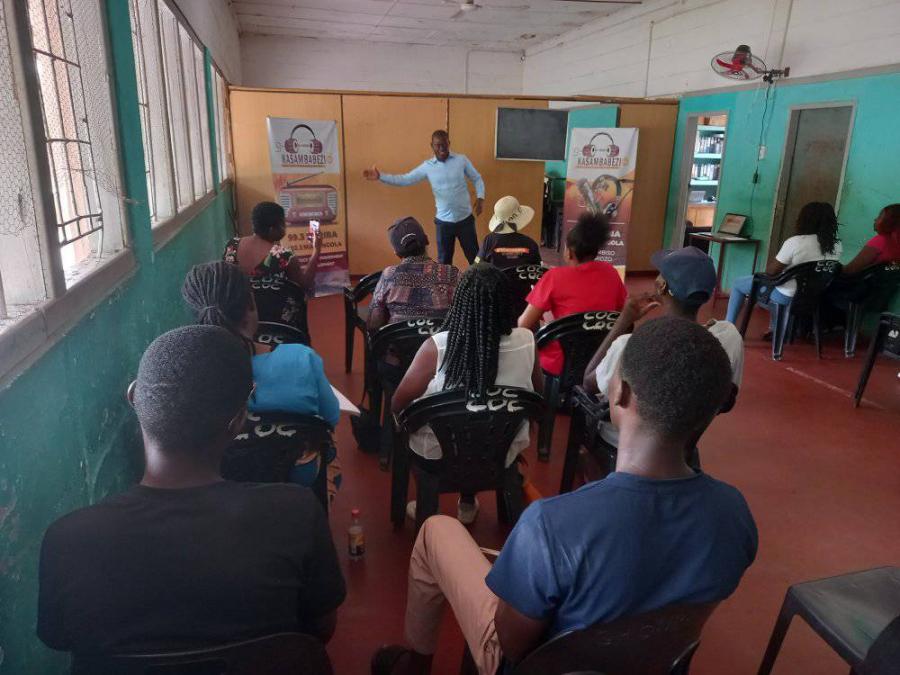
In 2022, The Zienzele Foundation identified the need for a communal space in the Chiware region of Zimbabwe for Shona women’s cooperatives to host their organizational meetings, health clinics, and marketing of traditional handicraft work. In collaboration with Cultural Survival’s Keepers of the Earth Fund, they have since built a community center complex near the village of Mupagamuri to serve the five surrounding villages. The building serves as a cultural hub, providing the opportunity for members of this Indigenous community to support themselves with locally-based trade and a place where the Elders can teach handicraft skills to younger women.
In 2019, The Zienzele Foundation funded the construction of their first community center in another cluster of villages around Berejena. That endeavor was a huge success and has already been used to serve a number of functions. So far, the facility has been used to conduct cervical cancer screenings, HIV testing, and workshops on reproductive health; and to host sales of handwoven baskets, markets for vegetables and poultry, workshops on sanitation procedures and maternal/infant wellness, regional ceremonies and celebrations, and meetings of the local Zienzele women's cooperatives.
After seeing how deeply the community had benefited from its first community center, the Zienzele Foundation was determined to construct a new center to serve another cluster of villages. Since its completion last year, the second center serves the villages of Mupagamuri, Chikofa, Mushai, Mawadze, and Chamatutu in the Chiware region. The Zienzele Foundation has a special relationship with the location of the Chiware Center, because for them, “this has always been a central place where Zienzele groups gather, rain or shine.” Prior to the construction of the Mupagamuri Center there had been no single structure large enough to accommodate gatherings or meetings. Now, the network of small, formerly isolated villages, with an aggregate population of approximately 4,000, benefit a great deal from opportunities to interact as a community.
Cultural Survival assisted the Zienzele building committee, which is composed of a combination of village leaders, local school leaders, and local women leaders, by providing a grant from the Keepers of the Earth Fund for the purchase of construction materials necessary for the completion of the Mupagamuri Center such as concrete, windows, doors, roofing material, and fencing. The Foundation described the funding as having a positive impact and significantly contributing to the completion of the project: “The grant empowered us to purchase and transport these high-cost materials directly. This kept the overall cost within budget and sped up the completion of construction. With the hardest-to-obtain materials on hand, everyone’s motivation skyrocketed, and the building was completed in one month!”
Self-reliance is a central value for the Zienzele community, and these Shona villages are notable for their commitment to the continuation of traditional handicrafts and architectural methods. The project was community-led, and each village participated in the various stages of traditional construction, from the initial communal effort of mud-brick making to the techniques used to build the traditional circular form of the kitchen outbuilding and its thatched roof. Zienzele Foundation Coordinator, Mai Dzadya, spoke of the process enthusiastically when she wrote, “I am proud of this. We made the bricks, which was a big important job, and now we have this place and it is ours and we can all use it.” Now that the project is complete, the building provides the opportunity for community members to support themselves with locally-based trade. This also gives the village women’s cooperatives a way to market their traditional handwoven baskets as well as a place where the Elders can teach this handicraft to younger women.
In recent years, intense cycles of drought and flood have caused widespread crop failure in Zimbabwe, and increasingly extreme flooding frequently destroys the roads that connect these already isolated villages from main regional supply networks. These issues are the direct result of climate change, which has exacerbated the surrounding region’s experience of food insecurity and puts the communities at risk of famine. In response, the Mupagamuri Center, with the sanitary cooking facility included in its design, provides a flood-safe space where this network of small villages can cooperate to overcome the extremes of food insecurity. By offering a sanitary space, the community center also provides a safe environment available to the entire community for health and wellness clinics.
In addition to providing a space for vegetable and poultry markets, handicraft workshops, and other presentations, the building offers climate resiliency to the community as a weather-independent indoor site for local meetings, and is a reliable location for inter-village product exchanges and a secure dry place to store seeds. The Mupagamuri Center will also provide a place for educational training workshops and community ceremonies. The headmaster at Chikofa Primary School, said, “This is important because it will give our students the chance for special trainings that will help them when they leave school... and now when we have official visitors, we have a clean, modern place to host them, so people must respect us as a community.”
Keepers of the Earth Fund (KOEF) is an Indigenous Led Fund within Cultural Survival designed to support Indigenous Peoples’ community development and advocacy projects.

